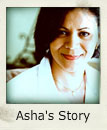Today’s guest post is from another former student and current dear friend, who I see very little but think of very much. I will arm-wrestle to the ground anyone who tries to say that I taught Sonja any more than I learned from her. Also, she’s the only student I’ve ever been with the very first time they ever saw dolphins. In the ocean. Sonja, You Rule.
Imposter syndrome. Coined by psychologists Pauline Clance and Suzanne Imes in 1978, it is a syndrome in which someone cannot internalize their accomplishments. While it is not an “official” disorder according to the Diagnostic and Statistical Manual (the big reference volume that psychologists use), it has been the subject of many books and articles for over four decades now.
And I suffer from a particularly bad case. I often don’t think I am good enough, or smart enough, or professional enough, or well-dressed enough.
I have heard that women suffer particularly from imposter syndrome. A study surveyed college freshmen a year after they were at the top of their graduating high school classes, and while the men generally still saw themselves as above average relative to their peers, the women generally thought they were average or below average.
I don’t know if we have been trained to see ourselves as imposters, or whether it is just engrained in certain people, but my internal monologue usually goes something like this:
If they knew me… if they REALLY knew me… then they wouldn’t trust me with this responsibility. I am fairly certain that if they knew that I was pretending that I am good at this, they would fire me, or ignore me, or tell everyone what a fool I am.
Sometimes, I read what I have written, or painted, or photographed, and I almost cannot believe that I did it. It’s too good, t0o well written, t0o skillful. There’s no way that I could do that now, I think.
Once I started to realize it was happening, though, I could catch it. I started noticing that if it had been a while since someone had complemented me, I started to develop the telltale signs. Or when I was comparing myself to others at a meeting, in a social setting, or in a friendship, I always found ways to discount my own worth.
But here is the thing: beating imposter syndrome involves more than just noticing it—you have to start to develop an internal locus of power.
A locus of power is what you attribute outcomes to. For example, if I have an external locus of power, then I will do something remarkable, but think, oh well, that was just by chance. Or that was just because my supervisor was clear about what she was looking for on that project. Or that was just because it was a Tuesday. Or any number of excuses.
On the other hand, if I have an internal locus of power, I can begin to attribute things to myself and my own capabilities. I did well on this project because I worked really hard on it, and I have spent years developing the tools to tackle it. Or I received a positive evaluation because I truly am a hard worker, and they are just noticing it. Or I got an A in a class because I actually studied hard for the exams.
And it makes sense. I am tired of feeling like an imposter in my own life. I am annoyed when my own lack of confidence (and not my abilities) keep me from taking risks. I am frustrated with a lack of direction because of a lack of recognition of where I have come from.
So right now, for me, leading my life means both owning up to my accomplishments and shifting my conception of my achievements away from my external circumstances and onto my internal abilities. It is challenging, yes, but it is also extremely rewarding.
I challenge you to identify where you feel like an imposter in your own life, and claim that area with your confidence, your skill, your ability to adapt to change. Join me in living into your true potential.
Sonja Egeland Kelly is now a PhD student at American University, after having worked in the microfinance industry with Opportunity International. She lives in Washington, DC with her husband Shane, and when she is not studying she is trying to figure out how to make the world a better place. When she’s stumped about how to lead her life, Sonja oftenlooks to Rainer Maria Rilke for inspiration, thanks to Michele’s suggestion eight years ago.











Leave a Reply